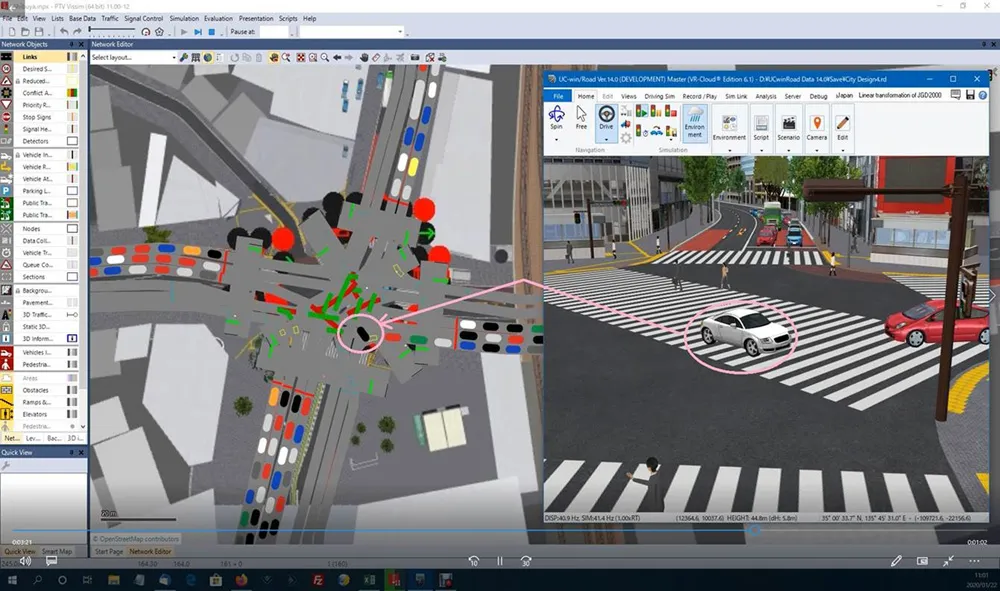German transportation modelling specialist PTV Group is working with UK consultants Atkins on a project commissioned by the UK Department for Transport which looks to simulate the potential impacts connected and autonomous vehicles (CAVs) may have on traffic flow and capacity of the UK road network.
The project uses PTV’s Vissim 8 software which enables users to create a virtual testing environment and simulate all modes of transport, illustrating their motion characteristics and mutual interaction. User
April 11, 2016
Read time: 2 mins
German transportation modelling specialist 3264 PTV Group is working with UK consultants 1677 Atkins on a project commissioned by the UK 1837 Department for Transport which looks to simulate the potential impacts connected and autonomous vehicles (CAVs) may have on traffic flow and capacity of the UK road network.
The project uses PTV’s Vissim 8 software which enables users to create a virtual testing environment and simulate all modes of transport, illustrating their motion characteristics and mutual interaction. Users can then not only examine the driving behaviour of autonomous vehicles but also their impact on traffic flow.
Atkins project manager Dr Dave Williams commented: “There are lots of uncertainties around the future of connected and autonomous vehicles. Whilst we are starting to understand what the capabilities might be, our aim for this project is to contemplate a range of different possible futures for CAVs. For example, whilst it is often assumed that CAVs will be able to travel at shorter headways, we are considering scenarios where CAVs are more cautious than the existing vehicle fleet, and looking at the implications for road capacity.
Our testing in PTV Vissim 8 involves modifying the car-following and lane-changing models to look at a range of different behaviours. Through the COM API we have con-figured CAVs to change their behaviour type according to the situation – this is an important aspect of evaluating the potential impacts of connectivity.”
The project is due to report in mid 2016.
The project uses PTV’s Vissim 8 software which enables users to create a virtual testing environment and simulate all modes of transport, illustrating their motion characteristics and mutual interaction. Users can then not only examine the driving behaviour of autonomous vehicles but also their impact on traffic flow.
Atkins project manager Dr Dave Williams commented: “There are lots of uncertainties around the future of connected and autonomous vehicles. Whilst we are starting to understand what the capabilities might be, our aim for this project is to contemplate a range of different possible futures for CAVs. For example, whilst it is often assumed that CAVs will be able to travel at shorter headways, we are considering scenarios where CAVs are more cautious than the existing vehicle fleet, and looking at the implications for road capacity.
Our testing in PTV Vissim 8 involves modifying the car-following and lane-changing models to look at a range of different behaviours. Through the COM API we have con-figured CAVs to change their behaviour type according to the situation – this is an important aspect of evaluating the potential impacts of connectivity.”
The project is due to report in mid 2016.







